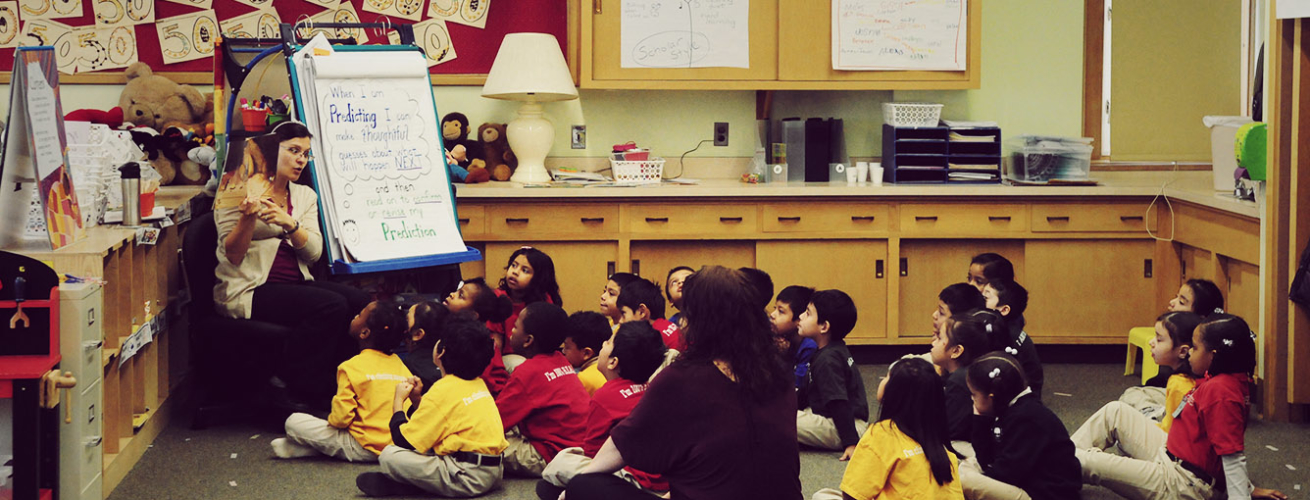So if you are a kid in Delaware—or in most places in America, for that matter—whose potential and prospects are being diminished daily because of the poor education you are receiving, you will need to wait. Not days. Not months. Perhaps years. Probably decades. The problem is you cannot wait.
One of my 20-month-old daughter’s quirks is that she does not like getting her hands dirty. If she falls outside, she quickly glances at her hands, and then at her parents, expecting us to dust her off with haste. Her teachers tell us she enjoys painting at school, but not the colorful residue it leaves on her hands. But all of this pales in comparison to her reaction when her diaper needs to be changed. She will stop me in the middle of whatever I am doing, grab my hand and make sure I relieve her from her diaper discomfort. While her distaste for dirty appendages is very much a function of her personality, I would like to think her urgency about poopy Pampers is more a function of her humanity. There is something innate about not wanting to fester in uncomfortable, unhealthy, and downright crappy conditions.
That is why teachers in Detroit earlier this year organized “sickouts” to protest the overcrowded, unsanitary and dilapidated condition of their classrooms. And why studentsin Dallas and in other cities protested about schools with asbestos, mold and broken HVAC systems. It is why the recent news here in Delaware about air quality issues related to mold in some Christina School District classrooms created an uproar and caused some to call for the school to be closed. It is only natural to want an immediate response to adverse or uncomfortable conditions.
Except when these conditions are not deleterious to your health but to your academic and life prospects.
If a school is bad for kids’ health, we want the issue investigated and someone to be held responsible, and we might even want the school closed.
However, if a school is providing an anemic education for kids, we dispute whether we know for sure that the school is subpar, we make excuses for why kids are not learning and we find ways to delay any actions to improve quality.
So if you are a kid in Delaware—or in most places in America, for that matter—whose potential and prospects are being diminished daily because of the poor education you are receiving, you will need to wait.
Not days. Not months. Perhaps years. Probably decades.
The problem is you cannot wait. The excellent education you are robbed of today generally translates into the social mobility, wealth, and career opportunities you will be deprived of tomorrow. You need action if you are receiving a mediocre education. Urgent action.
But that type of action and urgency is in short supply in the education system. Because instead of acting to ensure every student succeeds, we are too busy “adulting.”
This popular millennial phrase refers to “acting like an adult or engaging in activities usually associated with adulthood—often responsible or boring tasks.” In the education system, I would extend this definition beyond doing adult things—like writing plans, creating task forces, sitting on task forces, reviewing the recommendations of task forces, etc.—to having adult-centered conversations and making adult explanations for our adult actions (or inactions).
This tendency was nowhere more apparent than during the first meeting of Delaware’s new Every Student Succeeds Act (ESSA) Advisory Committee created by Governor Markell.
29 stakeholders (including me) were appointed to serve on the committee, representing a diverse set of constituencies. Our charge: give the state feedback and advice pe,rtaining to the Every Student Succeeds Act plan it intends to submit to the US Department of Education in March.
As the new federal K-12 education law, ESSA has serious implications for schools and for students as it sets policy addressing standards, assessments, teacher and leader quality, school accountability and reporting and federal funding for schools serving a high proportion of low-income students. Hence, Delaware’s ESSA plan presents a major opportunity to take urgent action to improve the quality of education students receive.
Instead, some committee members raised questions about why the Department of Education is submitting a plan in March when it is also possible to submit a plan in July. Some wondered why the Department would move forward with a plan when we have presidential and gubernatorial transitions on the horizon.
This is textbook “adulting” in the education sector: allowing uncertainty to undercut action and letting logistics become a logjam to making progress for students.What appears to be thoughtful and thorough approaches to implementation are too often just intricate paths to inertia.
I definitely would like to see the DDOE spend more time authentically engaging a diverse group of Delawareans as it develops its plan. But as a committee member, I asked a question that is, unfortunately, rare in education conversations: “What does postponing action mean for the students sitting in schools right now that are struggling to educate them?”
The DDOE responded that they are still working with the schools they identified as struggling in 2014 and will continue to work with those schools until a new plan is approved by the US Department of Ed.
Translation: because of the ESSA transition, there is currently no real accountability in place. If Delaware submits its ESSA plan later in the year, it is likely that students receiving a poor education, through no fault of their own, will have to wait until the 2018-19 school year for any intervention.
But students do not have the luxury of time. Their future is at stake while we converse on yet another committee and postpone yet another plan. To ensure they have a chance to succeed, students need us to quit “adulting” and start acting.

